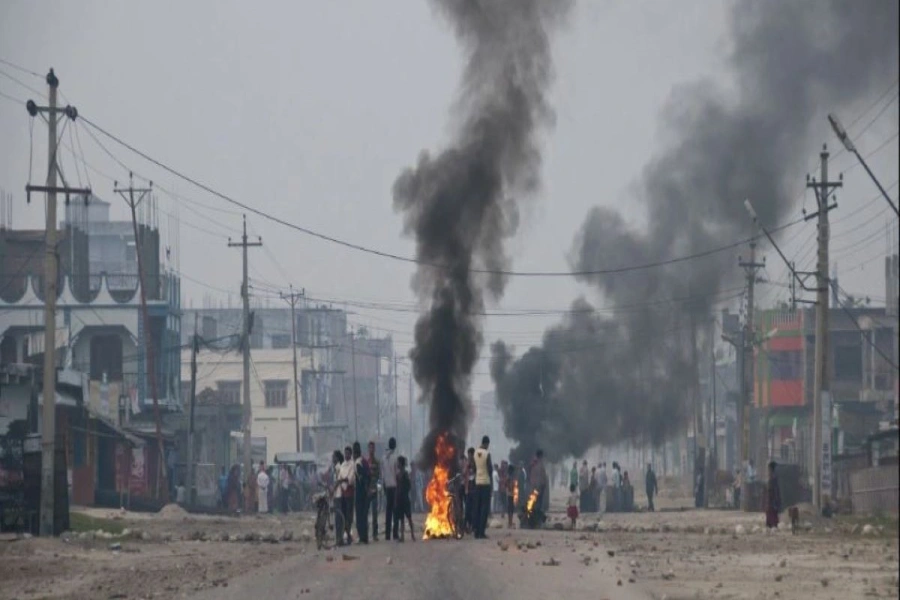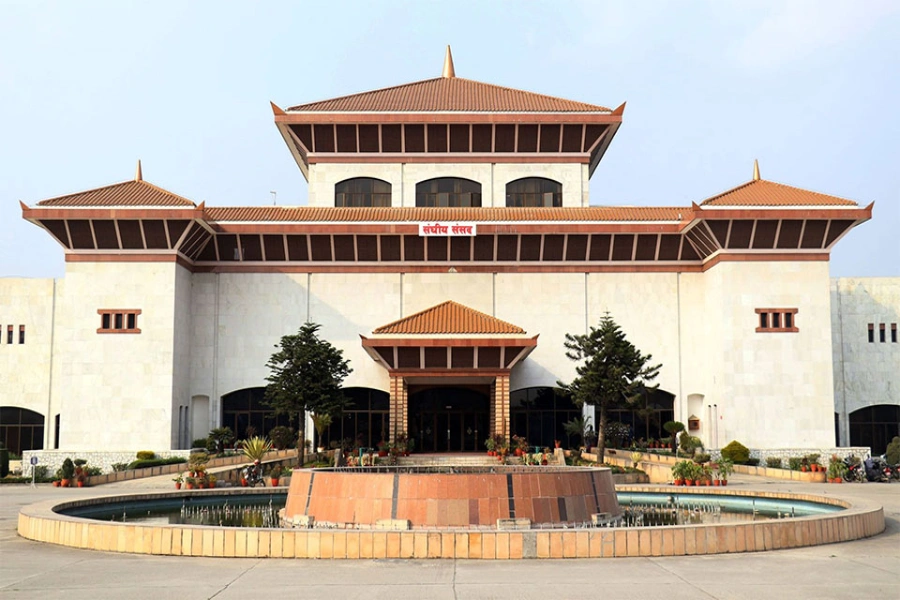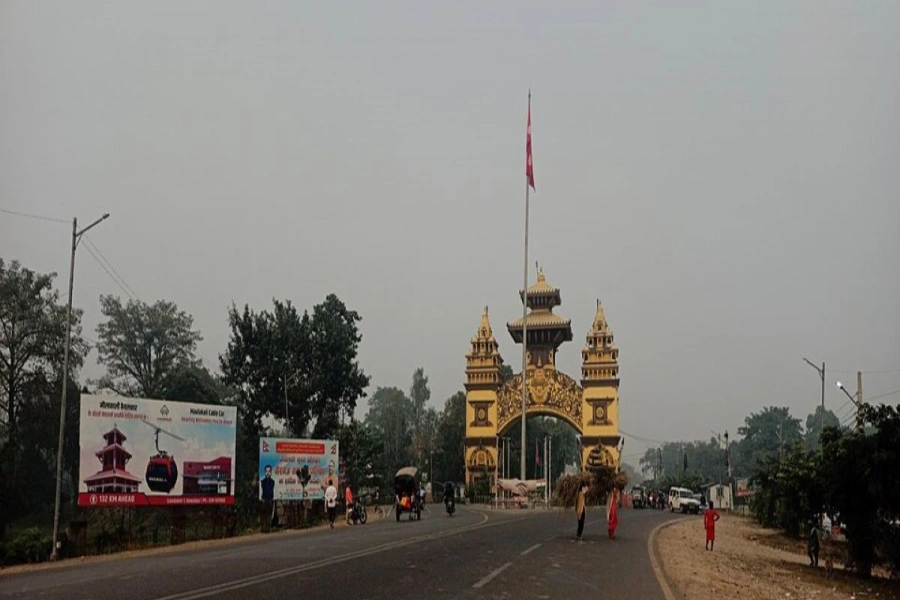Over-emphasizing the realty transaction will not benefit the economy in the long run: Economists
KATHMANDU, Dec 14: At a time when a number of macroeconomic indicators have been posting a dismal picture of the economy, Finance Minister Prakash Sharan Mahat claims that the economy has started to move on the right track following the quarterly review of the monetary policy.
Speaking at a press meet on Wednesday, Finance Minister Mahat exhilarated that due to his intervention into the Nepal Rastra Bank (NRB)’s monetary policy, the economy has bounced back on the right track. He expressed his joy over a single-day spike in the Nepal Stock Exchange (NEPSE) index and a positive sign in the transactions of the realty sector.
Adopting flexible policies mainly for the secondary market and real estate as directed by Minister Mahat, the NRB unveiled the first quarterly review of the monetary policy for the current fiscal year on Friday. Consequently, the secondary market jumped 111 points on Sunday, just to slow down again in the three consecutive days.
Real estate sector faces confidence crisis despite positive eco...

Economists however said that the short-term measures just for political stunt will not help yield positive results for an economy in the long run. “The economy till the date was seen to be over relying on the transactions of the realty sector. Once a slump is seen in the realty sector, the entire economy seems on the verge of a crash,” said an economist on anonymity. “And the government is repeating the same mistake even at the end when the economy is about to plunge.”
Mahat exaggerated the good position of the economy by overshadowing the ongoing problems. According to him, the revenue collection has improved recently while economic activities have started to take pace.
No doubt, the external sector’s indicators have improved recently but the domestic sector is struggling to move on a positive path. In the first four months, remittance posted an impressive growth, balance of payments went into surplus and import was moderated. But the soaring consumer price has crippled people’s lives, while people have suffered a heavy fall in their income due to low economic activities.
Keshab Acharya, an economist, said a drastic fall in output of production businesses and decline in cash flow are the indication of how badly the economy is facing the problem. “It is not a good sign that the realty business alone drives the entire economy,” he added.
At present, banks have been witnessing soaring nonperforming assets due to an increase in bad debts. In addition, there is a heavy decline in business of the fast moving consumer goods, according to entrepreneurs. It is reported that a total of 177 factories in Parsa district have been closed due to fall in their businesses.
Acharya said there appears to be a lack of linkage between external sector indicators and domestic economic activities. He added that the widening gap in the inflation rate of Nepal and its main trading partner India is creating a big threat for the Nepali economy.
Soaring public debt, misuse of the state’s financial resources, low confidence of investors, low capital expenditure, excessive recurrent expenditure, slow revenue collection and lack of long-term employment generation plan are among the underlying challenges at present.
Minister Mahat, without any hesitation, stated that he pressured the NRB Governor Maha Prasad Adhikari before the central bank endorsed its revised policy. “It is definitely not a wise decision that the Finance Ministry directly intervenes in the functioning of the country’s autonomous central bank,” Acharya added.



































